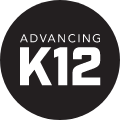
On a school’s education team, counselors often serve as utility players, stepping up to fill student needs of all kinds.
This is partly due to changes in their roles – a profession once focused solely on vocational guidance has expanded to include academic achievement, career planning, and social and emotional development. If it relates to student success, it matters to school counselors.
The counselor’s list of duties isn’t getting any smaller, and neither are their rosters. Be a champion for your school counselors, get to know their biggest challenges, and help them make an even larger impact.
A Role in Transition
School counselors work every day toward one core goal: student success. How that work is carried out – and how effective it is – varies greatly by state, district, and school.Much like students themselves, school counselors are finding a new identity and taking on more responsibilities. The profession has outgrown the name “guidance counseling” and is being replaced by the term “school counseling” in many districts. That small change in job title better captures the impact these professionals have throughout the entire school system, not just in vocational preparation.
Today, school counselors work in social-emotional, academic, and college and career realms, and they embrace data as a way to increase student success in all areas. But what does that holistic approach look like?
Measuring the Counselor Effect
School counselors may use soft skills, but they aren’t afraid of hard data. Terri Tchorzynski, the 2017 School Counselor of the Year, says data helps her team show stakeholders a clearer picture of what the counseling department does.Without data, the counselor effect is foggy. In a 2016 PDK poll of public attitudes toward public schools, only 6% of respondents said school counselors would be the #1 thing additional tax dollars should be spent on.
But a 2014 study shows that hiring additional counselors may be a more effective way to increase academic achievement compared to other education inputs, such as hiring additional teachers to reduce class size. In fact, the study found that hiring one additional counselor reduces student behavior incidents and increases the academic achievement of boys specifically by over one percentile point.
Here’s a snapshot of how counselors boost students’ well-being and achievement, even long after graduation:
•Students who have had a one-on-one meeting with a school counselor to discuss financial aid are 7 times more likely to complete a FAFSA.
•A one-on-one meeting with a counselor to talk about financial aid or college triples students’ chances of going to college.
•If a student’s school has a counselor whose primary responsibility is college selection and admissions, he or she is 16% more likely to meet with a counselor to discuss financial aid – a reason to reconsider counselors’ typical roles as utility players.
•Adding one additional high school counselor can lead to a 10% increase in four-year college enrollment – a great stat to share with your board when you are ready to bring another counselor on staff.
How to Support Your Counselors
Administrators can do plenty to ensure school counselors are able to work effectively in an environment where they feel supported.Make data collection easier: The American School Counselor Association (ASCA) recommends that 80% or more of a school counselor’s time be spent on direct or indirect services to students, leaving just 20% of a counselor’s time for everything else – data analysis, staff collaboration, and program planning, to name a few. Give your counselors accessible tools and training, so they can get the most out of that 20%.
Communicate their role: A counselor’s need to prepare for a large variety of student interactions can be a double-edged sword, putting them at risk for overload. This ASCA chart describes appropriate and inappropriate activities for counselors – share it with your counselors, and then consider making it available to staff, parents, and other stakeholders to build a shared understanding of a counselor’s role. Data analysis, individual and small group counseling, and student advocacy are appropriate activities, while paperwork, data entry, and discipline are not.
Connect with outside agencies: Tchorzynski describes the limitations of the role, particularly with increasing mental health concerns and social-emotional issues. She recommends connecting with outside agencies and making the most of your community contacts to provide further help in areas that fall outside of your counselors' comfort zones.
Share the results: School counselors are quickly becoming recognized as critical members of the education team, but it’s crucial to communicate their value to audiences outside the school walls. Positive PR and awareness efforts through social media, traditional media outlets, and even word of mouth can increase public support, knowledge of services available, and even funding for additional FTE.
An advocate for school counselors is an advocate for kids. Few other K12 professionals are as prepared to connect kids to the resources they need to succeed, so make it a point to be the #1 champion for school counseling in your district!
Arm yourself with knowledge by checking out the American School Counselor Association, joining #hscchat on Twitter, and talking to counselors about their roles in your schools.
WHAT'S NEXT FOR YOUR EDTECH? The right combo of tools & support retains staff and serves students better. We'd love to help. Visit skyward.com/get-started to learn more.

|
Advancing K12 Staff Edtech Thought Leaders |





